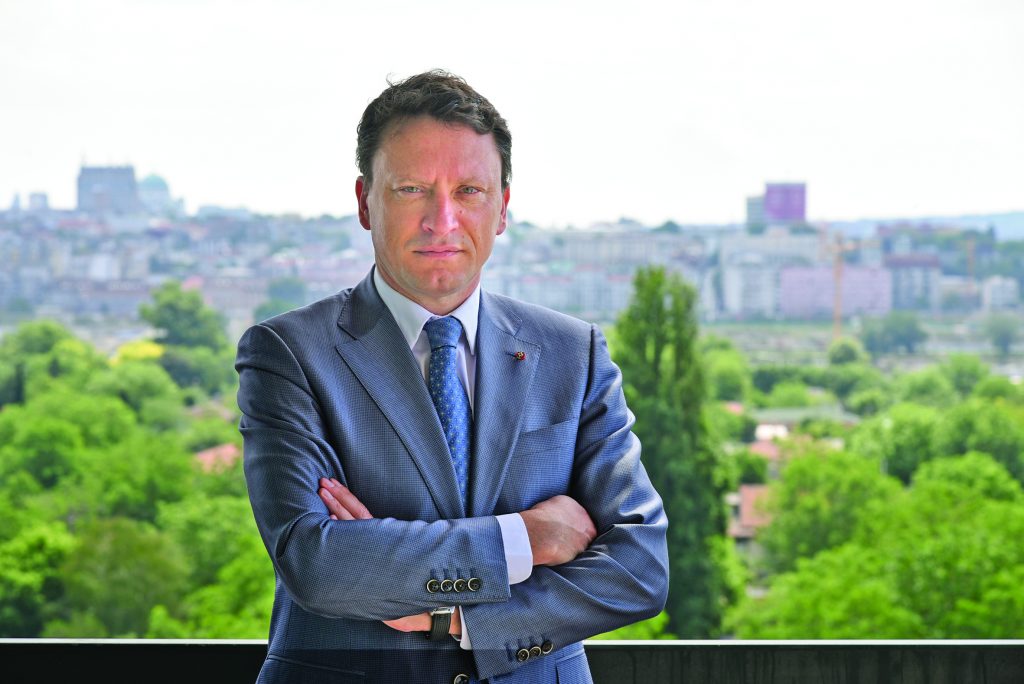The production of electric cars in Kragujevac has great significance for Serbia
We spoke with Vlatko Sekulović about the problems that banks have been experiencing due to the war in Ukraine, law, economy and Italian investments in Serbia.

What problems could Serbian businesses and citizens experience in their dealings with banks, as a result of the war in Ukraine?
Banks in Serbia recorded positive results in 2021, followed by the consolidation of the entire sector. Among other things, in that period, the biggest consolidation was OTP Bank taking over Societe General Bank. Favourable trends were still noticeable in the first quarter of 2022, but it is difficult to predict what the consequences will be for the stability of the global financial system, including the one in Serbia, due to the war in Ukraine. Interruption of supply chains, rising prices, primarily of energy, isolation of the Russian market and other factors are a serious challenge for the world and European and Serbian economies alike. Bearing in mind that banks’ crucial role in society is the allocation of financial resources and financing of economic development, every problem that businesses and citizens have can be reflected on banks. At the moment, those companies that are dealing with Russia in their business are exposed to risk. However, I believe that the European economy, including the Serbian one in that context, which is closely connected with the US economy, is sufficiently prepared and resilient to withstand increasingly significant shocks. Economic indicators remain positive, as do the forecasts of international financial institutions, despite the projections of a lower global economic growth rate.
What can Serbia learn from Italy when it comes to law, economy and business?
Italian businessmen are known for their high innovation level and the ability to solve unexpected problems very successfully in a short time. At the same time, businesspeople forming associations and cooperating with the community in which they operate are also an integral part of their entrepreneurial mentality. Sometimes it seems as if there is no orderly system in that organization and that it looks quite spontaneous, which again does not change the end effect of creating a network that makes it easier for businessmen to achieve business goals or mitigate negative economic effects.
In which segments could Italian businessmen become more actively involved in Serbia?
I understand that modern capitalism in developed countries is increasingly characterized by the application of ESG principles in companies’ operations, i.e. the application of high standards of environmental protection, social responsibility and transparent and inclusive governance. We no longer live in Friedman’s world from the 1970s, when the only responsibility of companies was to make a profit.
“We no longer live in Friedman’s world from the 1970s, when the only responsibility of companies was to make a profit”
Today’s large investment funds, banks, technology giants, as well as shareholders on stock exchanges, are much more sensitive to the social responsibility of the companies in which they invest and the conditions under which they make a profit. In that sense, I think that Italian businessmen could make a greater contribution to boosting this kind of awareness in our society.
Can we expect greater Italian investments in our country?
Last month, the Italian-French group Stellantis announced a very significant investment in Serbia. At one time, in 2006, resolving the issue of Zastava’s debt to FIAT ensured the return of this corporative giant to Serbia and the resumption of car production in Kragujevac. At the time, this investment had a very significant psychological and reputational effect on our country, re-positioning it on the global automotive industry map after complete isolation in the 1990s. Today, in the light of great macropolitical and macroeconomic changes, the production of electric cars in Kragujevac in Serbia has the significance that it had not only in 2006 but also in 1955 when car production was launched. In that sense, I expect that other Italian investors will follow suit with their production ideas and programmes, which demonstrates that the Serbian economy, engineers and workers can reach the very top of global trends.